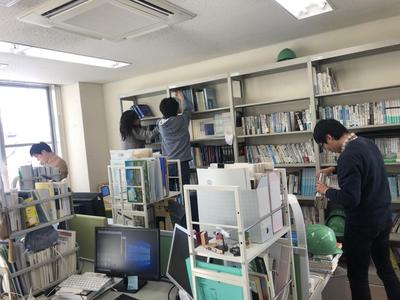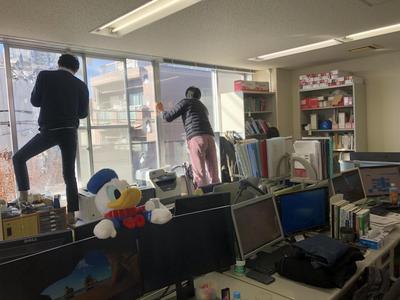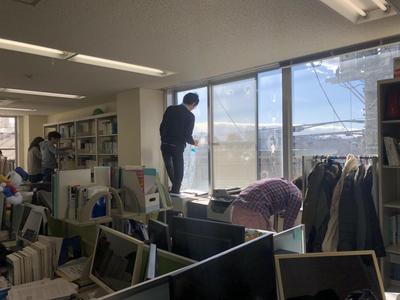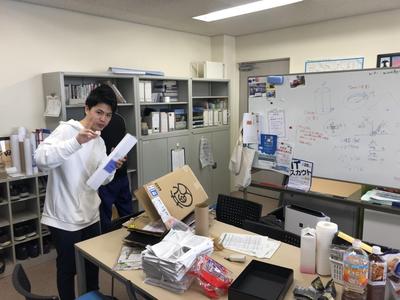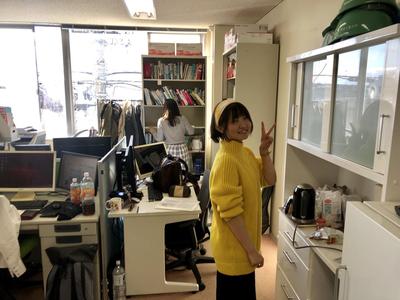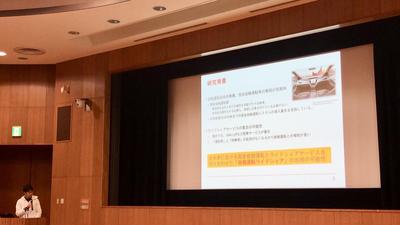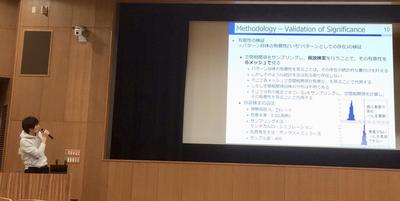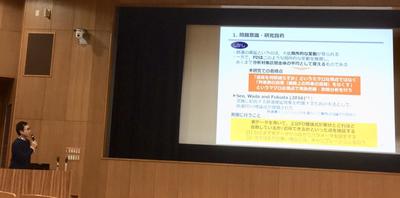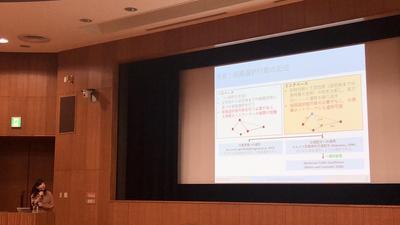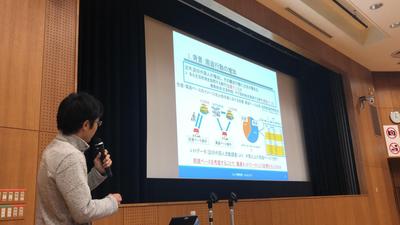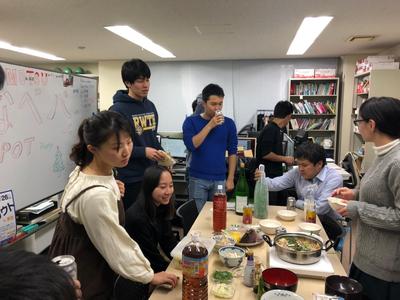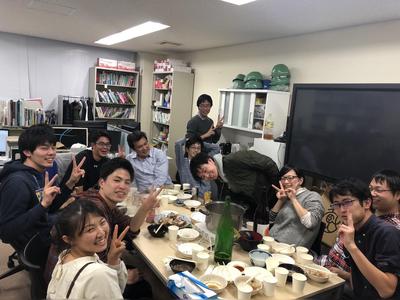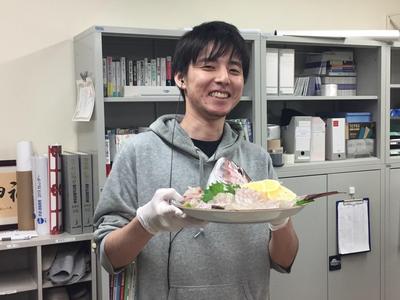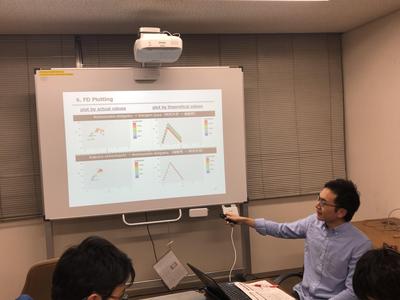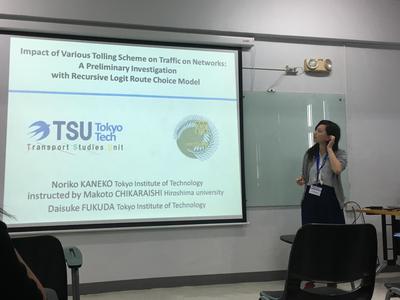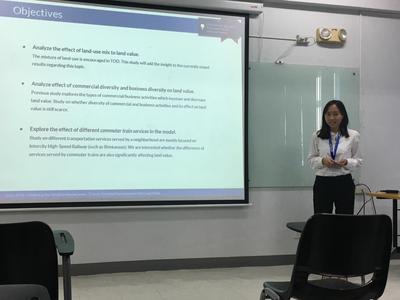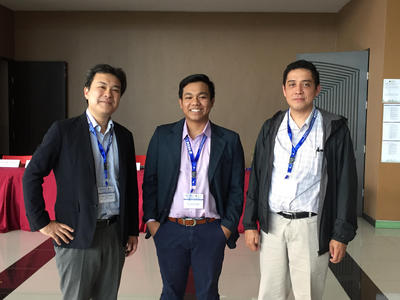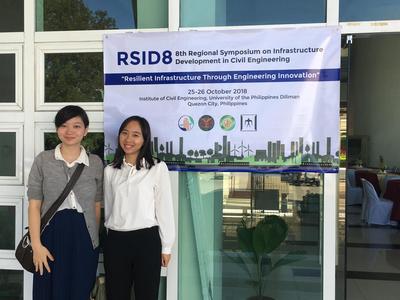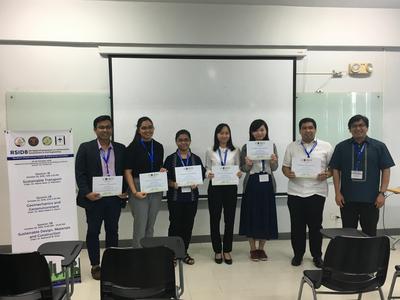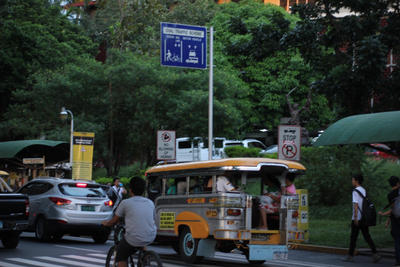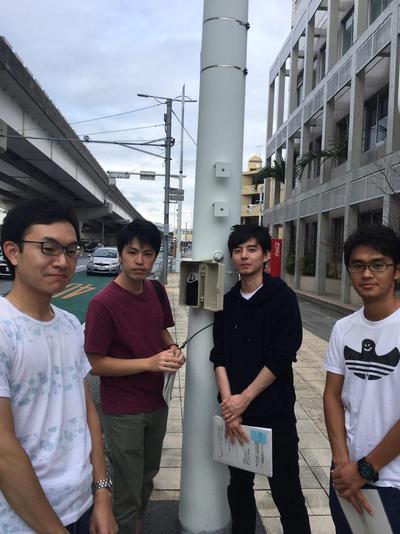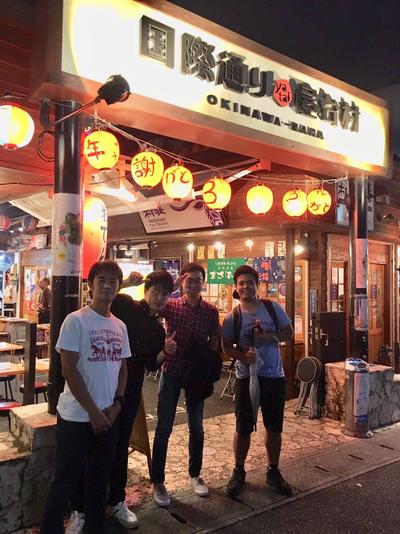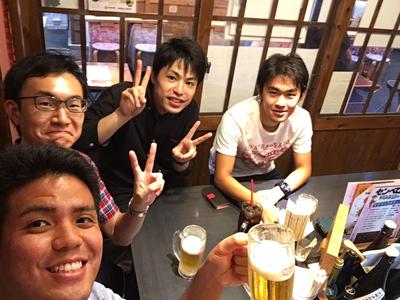Lab cleaning & Lab year-end party
[2018/12/28]
Our laboratory has been lightly cleaning after each seminar, but today we called it a ‘big’ lab cleaning and thoroughly cleaned the areas that are not usually cleaned, such as tidying and dusting the bookshelves, wiping windows and blinds. Let us keep the Japanese tradition of cleaning at the end of the year to welcome the New Year.
We had a wonderful time at the lab’s year-end party, where our alumni, including Dr. Yanaginuma, a lecturer at Tokyo University of Science, and Prof. Fukuda’s family members, came to the party.
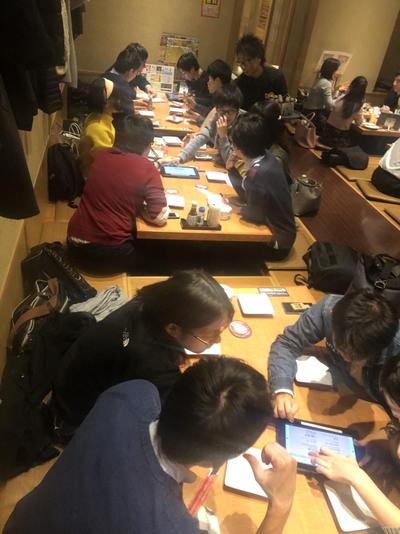 Many people also came to the 2nd round party. Let’s make sure we have another fun day like this next year, so that we can all live a fulfilling life!
Many people also came to the 2nd round party. Let’s make sure we have another fun day like this next year, so that we can all live a fulfilling life!
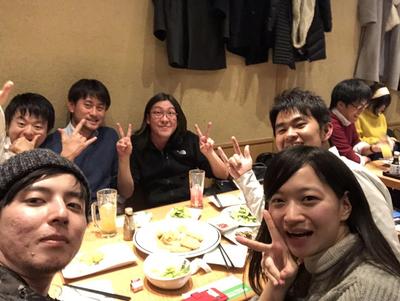
2018 TSU midterm presentation
[2018/12/27]
The annual midterm presentation of the five laboratories of the Tokyo Tech Transport Studies Unit (TSU) was jointly held on campus. The TSU year-end party was held after the presentations by B4 and M2 students and critiques by their professors. The professors told the students to make their research presentations interesting, and I personally agreed with their advice.
From our laboratory, (B4 student) Mr. Kita, (M2 students) Ms. Hirabayashi, Mr. Imaoka, Ms. Kaneko, and Mr. Suzuki presented their research. M1 students also participated in the lecture and received some good inspiration. There are less than two months left until the presentation of the thesis and dissertation, so please take care of yourself and do your best in your last spurt!
1st Hotpot Party
[2018/12/20]
Today was the last seminar of this year, so we had our annual dinner in the lab! The menu this time was sumptuous: motsu nabe, sashimi of sea bream, and simmered sea bream. The ‘Nabe'(Hotpot) party is the best in the cold season. Prof. Fukuda bought a ‘nabe’ set for us. Thank you very much!
Mr. Shiroma (M1) prepared the sea bream for us! It was nice!
The 11th lab seminar in the second semester
[2018/12/20].
Today we had our last lab seminar of the year. Mr. Oka (D2) and Mr. Dantsuji (D3) presented their work.
Mr. Oka analyzed the spatio-temporal flow patterns of freight vehicles in the Tokyo metropolitan area based on a tour pattern selection model by using the Recursive Logit Model.
Mr. Dantuji is researching the optimal billing method by constructing a simultaneous transportation mode and departure time selection model that takes into account hypercongestion in the road network and congestion in the railroad trains.
The 10th lab seminar in the second semester
[2018/12/13]
This lab seminar was given by Mr. Kita (B4) and Ms. Arum (M2).
Mr. Kita’s research aims to clarify Japanese people’s willingness to use fully automated driving and ride-sharing, which is expected to expand with the spread of automated driving, through SP survey questionnaires.
Ms. Arum is conducting an analysis of factors affecting land prices in the Tokyo Metropolitan Area by station walking distance. Here, a multilevel model is used to analyze a hierarchical sample in order to take into account correlations among adjacent neighborhoods. The results were compared with the conventional single level model and tested with the intraclass correlation coefficients (ICC) and the log-likelihood test, which showed that the multilevel model was superior.
The 9th lab seminar in the second seminar
[November 29, 2018].
Mr. Hirabayashi (M2) and Ms. Kaneko (M2) presented their research in this seminar.
Mr. Hirabayashi’s research, “Extracting Distribution Patterns of Pedestrian Flow Speed-Density Relationships Considering Spatial Correlation,” addresses the local spatial nature of pedestrian speed-density relationships. He uses the data from the Lausanne train station in Switzerland. Moreover, he tries to elucidate the mechanism of the occurrence of local spatiality.
Ms. Kaneko’s research entitled “A Study on the Construction of Sequential Route Selection Behavior and Optimal Charging System” aims to propose an optimal charging system that combines Markovian Traffic Equilibrium (MTE), which is an equilibrium allocation based on a Markov process in which travelers make sequential route choices, and congestion charging optimization.
Lausanne Station Pedestrian Flow Study
[2018/11/11~11/16]
My name is Hirabayashi (M2) and I have spent a week from November 11 for a pedestrian flow survey and meeting at Lausanne train station as part of my research activities.
The purpose of the meeting was to verify the results of the analysis and discussion using the walking trajectory tracking data that I had received from the EPFL research team in advance, through the site visit. Although I was not able to confirm the detailed interactions between pedestrians during the actual site visit, I believe that I was able to experience firsthand the differences between Japan and other countries, where traffic is not as regulated as in Japan (e.g., no promotion of right-side traffic), and the aspect of flow is more varied.
I also had a meeting with the research team of EPFL, who provided mes with the data. Although I could understand only a part of what they said because of my poor English, I could understand that they were not so interested in the results of the analysis that I was interested in, and I will continue to make some interesting discussions. (M2, Hirabayashi)
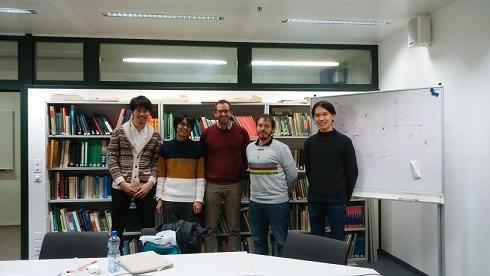
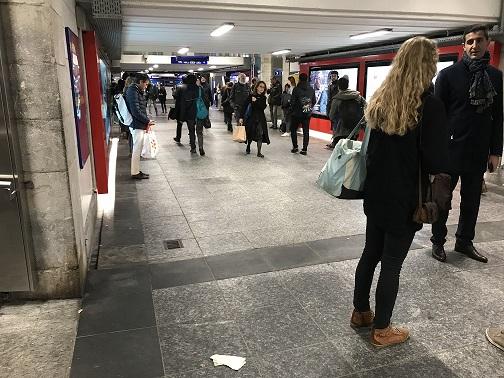
The 8th lab seminar in the second seminar
[2018/11/19]
The second semester of the research seminar has now entered its second round of presentations, as all students in the lab have completed their presentations. The second round of this semester started with presentations by Mr. Imaoka (M2) and Mr. Suzuki (M2).
Mr. Imaoka’s research is entitled “Validation of Fundamental Diagram for High-Frequency Urban Railway Operation System” and his goal is to construct a railroad operation model for chronic train delays during congestion using a Fundamental Diagram (FD), which represents the relationship between passenger flow rate and train density.
Mr. Suzuki’s research, “Optimization of Intercity Transit Networks Considering Passenger’s Tourist Travelling Behavior,” aims to clarify how the optimal intercity transit network can be changed by considering the tourist’s touring behavior.
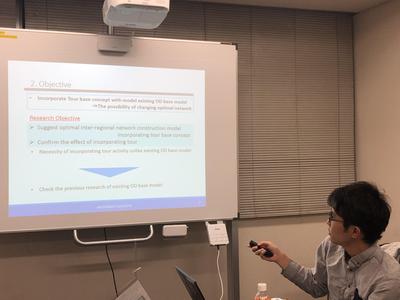
RSID8 @ University of the Philippines Diliman
[2018/10/25 ~10/26]
The Regional Symposium for Infrastructure Development (RSID8) was held at the University of the Philippines Diliman, and (M2 students) Ms. Kaneko and Ms. Arum from our laboratory presented their research.
This symposium is jointly held by the University of the Philippines, Kasetsart University (Thailand), and our university, and is an opportunity for civil engineering students to exchange research.
Ms. Arum presented “Modeling the Relationship between Transit-Oriented Development and Land Value”, while Ms. Kaneko presented “Impact of Various Tolling Schemes on Traffic on Networks: A Preliminary Investigation with Recursive Logit Route Choice Model”.
The presentations provided an opportunity for a meaningful exchange of opinions on sustainable transportation.
We were also able to experience “Toki,” a public transportation system that runs on campus, and “Grab,” a car hailing system, which helped us deepen our understanding of transportation in Southeast Asia!
| Conferences Lab Life by Students
Okinawa Bus Lane Effectiveness Study
[2018/10/17~10/18]
A vehicle speed survey using Bluetooth, which is used in smartphones and other devices, was conducted in southern Okinawa by the Regional Futures Research Center and Kamiya Laboratory of the University of the Ryukyus. From our laboratory, (M2 student) Mr. Imaoka, (M1 students) Mr. Ogawa and Mr. Shiroma, and (B4 student) Mr. Kita participated in the survey.
The survey covered buses and regular vehicles on Route 58 between Kumoji, Naha City and Isa, Ginowan City in the Okinawa Prefecture, where bus lanes are in operation. Ten Bluetooth sensing devices were installed in this section.
Since this survey was conducted during the “Watta~Bus Grand Experiment“, which is being conducted to relieve serious road congestion in Okinawa Prefecture, it is expected to measure the results of promoting no-car commuting and staggered commuting during the period from 15th October to 31th October in 2018.
After the survey, we also held a meeting with the Kamiya Lab.
また,調査後,神谷研との交流会も行いました.
